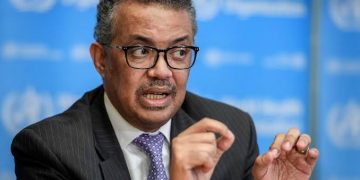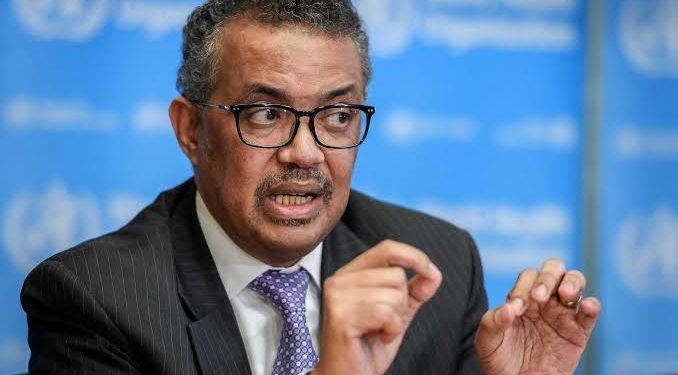By John Ikani
The World Health Organization (WHO) inaugurated its inaugural traditional medicine summit on Thursday, with the organization aiming to amass proof and information to facilitate the secure application of such treatments.
As stated by the UN health agency, traditional medicines are often the “initial choice for countless individuals globally.” The discussions in India are uniting policymakers and academics to foster “political commitment and action grounded in evidence” for these therapies.
As the summit commenced, WHO Director-General Tedros Adhanom Ghebreyesus expressed, “WHO is focused on assembling evidence and data to guide policies, benchmarks, and rules for the secure, cost-effective, and equitable utilization of traditional medicine.”
While traditional medicine has the potential to address healthcare “access disparities,” its worth is apparent only if used “properly, efficiently, and primarily, safely based on the most recent scientific proof,” Tedros cautioned earlier.
Concurrently with a meeting of G20 health ministers in Gandhinagar, India, the two-day WHO Traditional Medicine Global Summit is transpiring.
Harold Varmus, Nobel laureate and Chair of the WHO Science Council, conveyed via video link, “We must confront the significant real-world reality that traditional medicines are extensively employed. We must comprehend the components found in traditional medicines, the reasons for their efficacy in certain cases, and crucially, we must differentiate and recognize the ineffective traditional medicines.”
Intending to become a recurring occurrence, the summit follows the inauguration of the WHO Global Centre for Traditional Medicine in Gujarat, India, last year.
– Lack of regulatory oversight –
While certain regions embrace traditional medicines, these remedies also confront robust criticism.
According to the UN health agency, traditional medicine encompasses the understanding, techniques, and practices utilized over time to sustain health, prevent, diagnose, and manage physical and mental ailments.
However, several traditional treatments lack verified scientific value, and conservationists contend that this sector fuels an uncontrolled trade in endangered animals like tigers, rhinos, and pangolins, putting entire species at risk.
During the Covid-19 pandemic, the use of homemade remedies surged, including a green herbal concoction based on Artemisia, endorsed by Madagascar’s president as a remedy. While Artemisia is proven effective against malaria, its application to combat Covid-19 was widely met with skepticism among many medical professionals.
China boasts a rich history of traditional medicine, yet prominent European medical bodies have previously insisted on subjecting it to the same stringent regulatory oversight as conventional medical practices.
John Reeder, WHO’s head of research, stated, “Advancing traditional medicine science should adhere to the same rigorous standards applied to other health sectors.”
Among the WHO’s 194 member states, 170 acknowledged their utilization of traditional and complementary medicine since 2018. However, only 124 reported possessing laws or regulations for herbal medicine usage, and only half had a national policy concerning these methods and treatments.
The WHO emphasized, “Natural doesn’t always equate to safe, and centuries of usage don’t guarantee efficacy. Hence, scientific procedures must be employed to provide robust evidence.”
The WHO noted that approximately 40 percent of approved pharmaceutical products presently in use stem from a “natural product basis.” This includes “seminal drugs” derived from traditional medicine, such as aspirin, which originated from formulations involving willow tree bark.




































